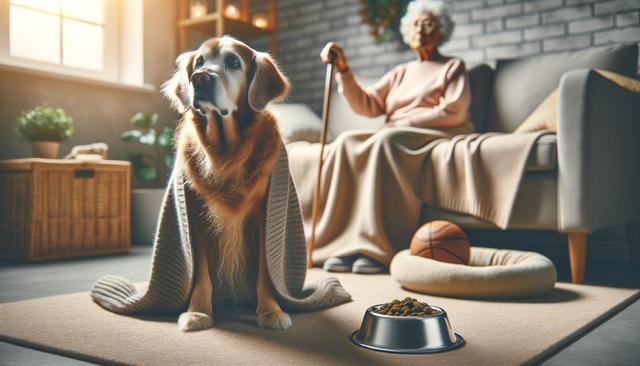Why Choose a Senior Pet?
Senior pets often get overlooked in shelters, but they have so much to offer. Most older animals are already house-trained, have established personalities, and are often well-behaved. These qualities make them excellent companions, especially for individuals or families looking for a calmer, more predictable pet experience. While puppies and kittens require significant time and patience for training, senior pets typically settle into new homes quickly and with less fuss.
Adopting a senior pet is also a compassionate choice. Many older animals have been surrendered due to circumstances beyond their control, such as the death or illness of a previous owner. Offering them a second chance not only provides them with a loving home but also gives you the opportunity to make a meaningful difference in their final years.
They are especially well-suited for people who may not have the energy for a high-activity pet. Whether you’re a retiree, a single adult with a steady routine, or someone who simply appreciates companionship without chaos, a senior pet can be a perfect fit.
Preparing Your Home for an Older Companion
Senior pets may have specific needs related to mobility, comfort, and accessibility. Preparing your home properly ensures they feel safe, secure, and welcomed. Here are a few ways to adapt your space for an aging animal:
- Provide soft bedding to support joints and bones.
- Place food and water bowls within easy reach, avoiding stairs if possible.
- Create a quiet, low-traffic area where they can rest undisturbed.
- Use rugs or mats on slippery floors to prevent falls.
- Consider pet ramps or steps to help them access furniture or vehicles.
Even if your pet appears healthy at first, it’s essential to schedule a veterinary check-up soon after adoption. This initial visit helps identify any underlying conditions and allows you to develop a personalized care plan tailored to your pet’s age and health status.
Understanding Health and Nutrition Needs
Older pets often require specialized diets and regular health monitoring. Their metabolism slows down, and they may become more prone to certain conditions such as arthritis, dental issues, or kidney problems. Working with a veterinarian to choose the right food and supplements can help maintain their quality of life.
Key areas to focus on include:
- Weight management to reduce stress on joints and organs.
- Digestive support through easily digestible, nutrient-rich foods.
- Dental care to prevent infections and discomfort.
- Regular screenings for age-related diseases.
Maintaining a consistent feeding schedule and avoiding overfeeding are also crucial. Treats should be given in moderation and preferably tailored for senior pets. Hydration is another point to watch closely, as older animals may be more prone to dehydration or urinary problems.
Building a Bond Through Routine and Gentle Activities
Bonding with a senior pet is a beautiful experience but may require patience and understanding. Older pets might take longer to adjust to a new environment, especially if they’ve experienced upheaval or loss. Establishing a predictable routine helps them feel secure and builds trust over time.
Engage them with low-impact activities suited to their age and physical capabilities:
- Short, leisurely walks to stimulate their senses.
- Gentle grooming sessions to reinforce bonding and maintain hygiene.
- Interactive toys designed for slower reflexes and sensitive teeth.
- Calm cuddle time or simply sitting together in the same room.
Pay attention to their body language and avoid overstimulation. Senior pets often prefer quiet companionship over intense play. The more you tune into their cues, the more rewarding your relationship will become.
Emotional Rewards and Long-Term Commitment
While the time with a senior pet may be shorter than with a younger one, the emotional rewards are often profound. The gratitude and affection shown by an older animal can be deeply touching. Many adoptive owners report that their senior pets become some of the most loyal and loving companions they’ve ever had.
It’s important to be prepared emotionally and financially for the responsibilities that come with senior pet care. This includes potential medical expenses, lifestyle adjustments, and end-of-life planning. However, the commitment is often outweighed by the joy, comfort, and companionship these pets bring into a home.
By providing a safe, caring environment, you’re not only enhancing their final years—you’re enriching your own life with unconditional love and daily reminders of resilience, trust, and loyalty.
Conclusion: Welcoming Love in Its Golden Years
Adopting a senior pet is a compassionate and fulfilling decision that brings immense emotional value. These animals have so much love left to give, and with the right care and environment, they can thrive and bring joy to your life. Whether you’re a first-time pet owner or someone looking to offer a second chance, opening your home to an older companion is a meaningful way to make a difference—one that benefits both the pet and you in countless heartfelt ways.


